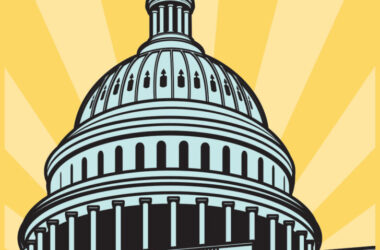CHARLESTON, W.Va. — Gov. Earl Ray Tomblin says a proposed one-year delay in implementing inspections for aboveground storage tanks is too long of a wait, and he intends to hold companies to the Jan. 1 deadline.
Tomblin was criticized last week for not allowing a special session which would have given legislators a chance to delay a key deadline for the bill. Last week the West Virginia Department of Environmental Protection issued interpretive rules, giving companies guidance on how stringent the inspections need to be and who was allowed to conduct the inspection depending on the tank’s location and contents.
Companies already are working toward meeting two other deadlines, one on Oct. 1 for registering the tanks and Dec. 1 for filing Spill Prevention Response Plans.
Legislators had intended to move the inspection deadline from Jan. 1, 2015, to Jan. 1, 2016. Tomblin said Wednesday he believed such a delay would have been a safety concern.
“A year was too long. We could still have a spill tomorrow,” he said. “I didn’t want to delay the most important part of the bill by a year.”
The storage tank requirements are part of Senate Bill 373, the Water Resource Protection Act, which was drafted and passed last session in response to the January chemical spill by Freedom Industries which tainted the water supply for hundreds of thousands of West Virginia residents in and around Charleston.
Tomblin said the original legislation was targeted at “zones of critical concern,” areas where a chemical spill could have an immediate and irreversible impact on public health, such as near sources of drinking water.
The legislation as approved, however, expanded that scope to all aboveground storage tanks, and the estimated number of tanks affected rose from several thousand to nearly 80,000, including tanks which contain only drinking water, brine or even food products.
“Those tanks aren’t going to cause anyone any harm,” if they leak, Tomblin said.
Business owners, especially those in the oil and gas industry, complained the required annual inspections by a certified professional engineer could cost companies thousands of dollars for tanks which contain non-toxic substances or are located in remote areas of the state.
Tomblin said he believes the guidance put out by the WVDEP is the best way to handle the situation and it eases some of the concerns surrounding those tanks not located in critical zones and those which don’t contain toxic substances.
“It brings some certainty to the industry,” he said. “It gives some relief for them. I think it is a reasonable approach.”
Senate President Jeff Kessler, D-Marshall, said he believes the bill should have a chance to go through the legislative rulemaking process and be corrected. Kessler says the use of an interpretive rule rather than a special session circumvents the Legislature.
“We don’t go into session until January,” when the deadline occurs, Kessler said. “Unless the governor calls us into special session, that’s the path we will go down.”
Kessler said the interpretive rule “lacks the weight of law” and the WVDEP will still have to issue an emergency rule next year.
“What (the governor) was proposing is a bridge, and it’s still a swinging bridge moving side to side,” he said. “It’s not anything permanent and it’s still fairly flexible.”
Sen. John Unger, D-Berkeley, who was lead sponsor on the Water Resource Protection Act, said while he understands Kessler’s concerns over the interpretive rules being used to circumvent the Legislature, he believes it is in the best interest of the state to allow legislators more time to address issues with the bill.
“I think the governor is right in the sense that any delay risks something bad happening,” Unger said. “They are predicting this winter is going to be worse than last, and part of the problem with Freedom Industries was the integrity of their tanks were affected by the cold and ice.”
Unger said he also believes the upcoming elections in November could have had a negative effect on any serious legislative discussion.
“If it had gone into special session, the debate would have been more than just pushing back a date on the application,” he said. “All of these special interest groups would have taken a second bite at the apple and pushed a lot of money because of the elections to weaken enforcement.”
Unger said he does plan to pursue changes to the bill during the regular legislative session, including exempting farmers who already have their tanks governed under the state Department of Agriculture. At the same time, he said, legislators and the public must keep an eye on the bill to make sure it’s not weakened.
“We’d better be careful,” he said. “Everyone wants to be exempt.”
To read more from the Parkersburg News and Sentinel, subscribe here.



